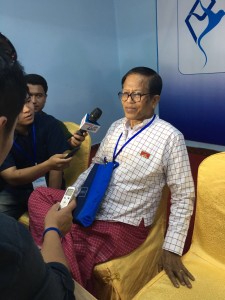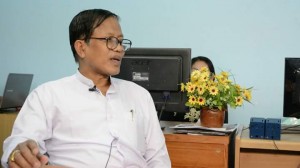There are no ethnic armed groups or political parties pushing to leave the Union, according to Nai Hongsar, vice-chairman of United Nationalities Federation Council(UNFC).
UNFC deputy leader stated the above during a press conference at the Mai Ja Yang summit, in the controlled area of the Kachin Independent Organization (KIO), Kachin State, on Wednesday [July 27].

Over 100 representatives are present at the Mai Ja Yang summit. These representatives are from ethnic armed groups that signed the nationwide ceasefire agreement (NCA) and non-signatory groups, members of the United Nationalities Alliance (UNA) and the Nationalities Brotherhood Federal (NBF), the Women League for Burma as well as international representatives, including delegates from the UN and China.
However, leaders of four ethnic groups did not attend the summit. The United Wa State Army (UWSA), Ta’ang National Liberation Army (TNLA), Myanmar National Democratic Alliance Army (MNDAA) and National Socialist Council of Nagaland-Khaplang (NSCN-K) were all absent.
Nai Hongsar added that what ethnic groups demand is an establishment of a union with democratic rights, national equality and self-determinations.
“In this current situation, if one group leaves [the union], it will lead to great danger. No one wants to leave. If there is real national equality and self-determination, which is what they [ethnic groups] want for their nationalities, no group will leave. We can assure you of that,” said Nai Hongsar.
The objectives of the four day summit at Mai Ja Yang, from July 26 to 29, are to prepare for the 21st Century Panglong Conference as well as the political standpoints for the future establishment of a democratic, federal union. Many ethnic groups find the current political representation system inequitable and hope that this reform will greatly benefit ethnic minorities.
At the summit, the representatives discussed four main topics including basic policies for the constitution of federalism, democratic union establishment, policies for security and defense, and amending a political discourse framework.

